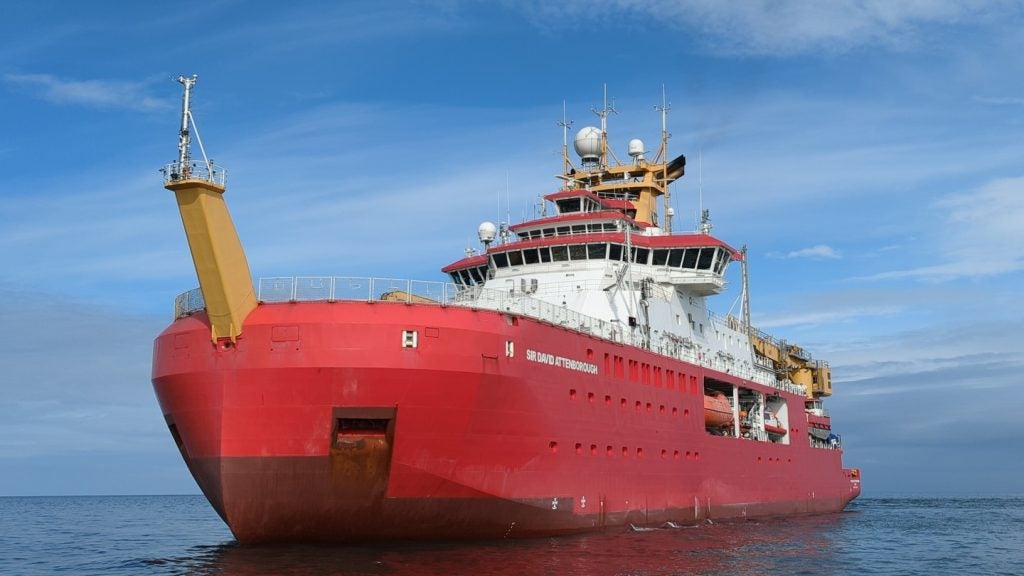The British Antarctic Survey’s (BAS) flagship RRS Sir David Attenborough has begun trials of a hydrotreated vegetable oil (HVO) fuel that could lead to its use on the ship’s next science cruise to the polar south.
The Bergen engine-powered vessel has so far been run on Marine Gas Oil (MGO) but is trialling the low-carbon alternative HVO fuel on one of its engines as part of the organisation’s wider push towards its net zero by 2040 target.
Nopi Exizidou, BAS’ Net Zero transition lead, told Ship Technology that the trial was just the starting point in the organisation’s exploration of alternative fuels, which will be part of its transition to net zero by 2040: “For this trial, we are going to use 550m³ of HVO, we have cleaned a tank, which was using marine gas oil before and it's linked to a specific set of engines so that we can monitor its performance.
“If that is successful, then we're going to look at the longer-term use of the fuel for going south.”
The trial is using a 100% HVO fuel which has been accredited by the International Sustainability and Carbon Certification initiative so BAS can fully trace the feedstock of the fuel through the supply chain.
This is particularly notable as HVO, which is a mix of a variety of feedstocks such as waste cooking oil and residual animal fat, has sometimes come under criticism for the fact that some mixes contained palm oil.
Exizidou also noted that BAS worked with suppliers that were conducting lab tests on the fuel to ensure the quality of the mix.
However, though the current trial of the fuel is using a 100% HVO, Exizidou said this may not be the case if BAS decide to continue using the fuel in the future due to cost and availability factors.
Exizidou added: “There is plenty of availability in the UK but we operate also in the Southern Ocean and, at the moment, we can't get [HVO fuel] from the Falklands, for example. So, there is a matter of availability and, as the demand grows, that is going to be a bigger issue going forward.”
While the organisation believes that the use of the 550m³ of HVO on the Sir David Attenborough during this trial will already reduce its overall shipping emissions by 10% for the year and BAS’ total carbon footprint by 6%, the affordability of the fuel will also be considered when looking at its use after the trial, according to Exizidou.
Despite this, the net zero lead was keen to emphasise that the use of HVO was only a part of BAS’ wider sustainability plan which includes the use of solar power at its Antarctic research stations, an AI model which maps the most efficient route for the ship to take, and a hydropower plant at the King Edward Point Station.
The results of the RRS Sir David Attenborough’s trial will be analysed by BAS following the conclusion of its current journey around Scotland conducting scientific equipment and ship system tests.
HVO is one of a number of alternative fuels being used by the maritime industry as it seeks to reach net zero targets with large companies such as DP World also using the low-carbon alternative.









